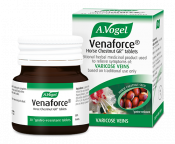Introduction to varicose veins and aching legs
Aside from the visible symptoms, there are a number of other symptoms that can also be attributed to varicose veins. One of these is aching in the legs.
This symptom is often worse at night or at the end of a busy day, particularly for people who have been standing up all day; though people who have been sitting down all day can also be affected as this slows down circulation.
It can be and annoying, unpleasant or upsetting symtpom and in severe cases can reduce quality of life.
Why can varicose veins cause aching legs?
In most cases it is normal for varicose veins to cause some aching in the affected areas. This is because these veins are essentially damaged veins. They are often stretched, enlarged or swollen and this causes their valves to leak which allows blood to flow backwards, further damaging the vein. This also means that blood can begin to pool around the damaged vein. These veins have to work even harder to overcome this damage and pump blood against gravity towards the heart.
All of this, not surprisingly, can begin to cause pain and aching as pressure and toxins build up in the legs.
However, if this ache is severe, starts suddenly or suddenly gets worse you should consult your doctor to make sure you are not experiencing any complications or underlying health issue.
Self-help tips
There are a number of things you can do to alleviate this symptom. Here are our self-help tips for aching legs:
- If your legs ache more in the summer, you should try to keep them as cool as possible – wear loose, comfortable clothing, avoid hot baths and try giving your legs a cold shower
- In some cases, however, a warm bath may be exactly what your aching, tired legs may need
- Exercise is important for healthy legs. Swimming and cycling are great for boosting circulation and stretching stiff muscles, but even something gentler like a short walk or yoga can be hugely beneficial. If you spend a lot of time sitting at a desk, remember to keep your legs moving: try flexing your calves and wiggling your toes for a few minutes every half hour
- Magnesium is important for muscle function, so make sure you’re getting enough. Without magnesium your muscles may tense up, causing aches and pains. High magnesium foods include pumpkin seeds, mackerel, spinach, fig, brown rice, quinoa and avocado
- Try elevating your feet above your heart when you get the chance: common recommendations are three to four times a day for fifteen minutes at a time. Lie down with your feet resting on a couple of pillows. This allows blood to flow with gravity towards your heart, giving your damaged veins a rest. If you work from a desk and don’t get chance to elevate your feet above your heart, even elevating them slightly on a foot rest can help.
How can herbal remedies help?
There are a number of natural or herbal remedies you can try to relieve aching legs.
Horse Chestnut is great for varicose veins. It improves blood flow in veins and manages the symptoms commonly associated with varicose veins symptoms such as tired, heavy or aching legs. Horse Chestnut extract is available in A.Vogel’s Venaforce tablets, or in Venagel, for external use on the affected area. This can be great for soothing aching legs at the end of a long day.
Please note: Venaforce is not suitable for pregnant women, but Venagel may be used safely.
Conventional treatment
If self-help or herbal remedies do not help your aching legs, then a visit to your doctor may be necessary. One important reason for this is to confirm the diagnosis and make sure that there are no other causes of your leg pain that need to be addressed.
If your doctor can confirm that your aching legs are the result of varicose veins, then they may choose to treat the veins. Conventional treatments available for varicose veins range from wearing compression stockings or tights to a number of surgical options. These treatments are detailed on our varicose veins treatment page.








